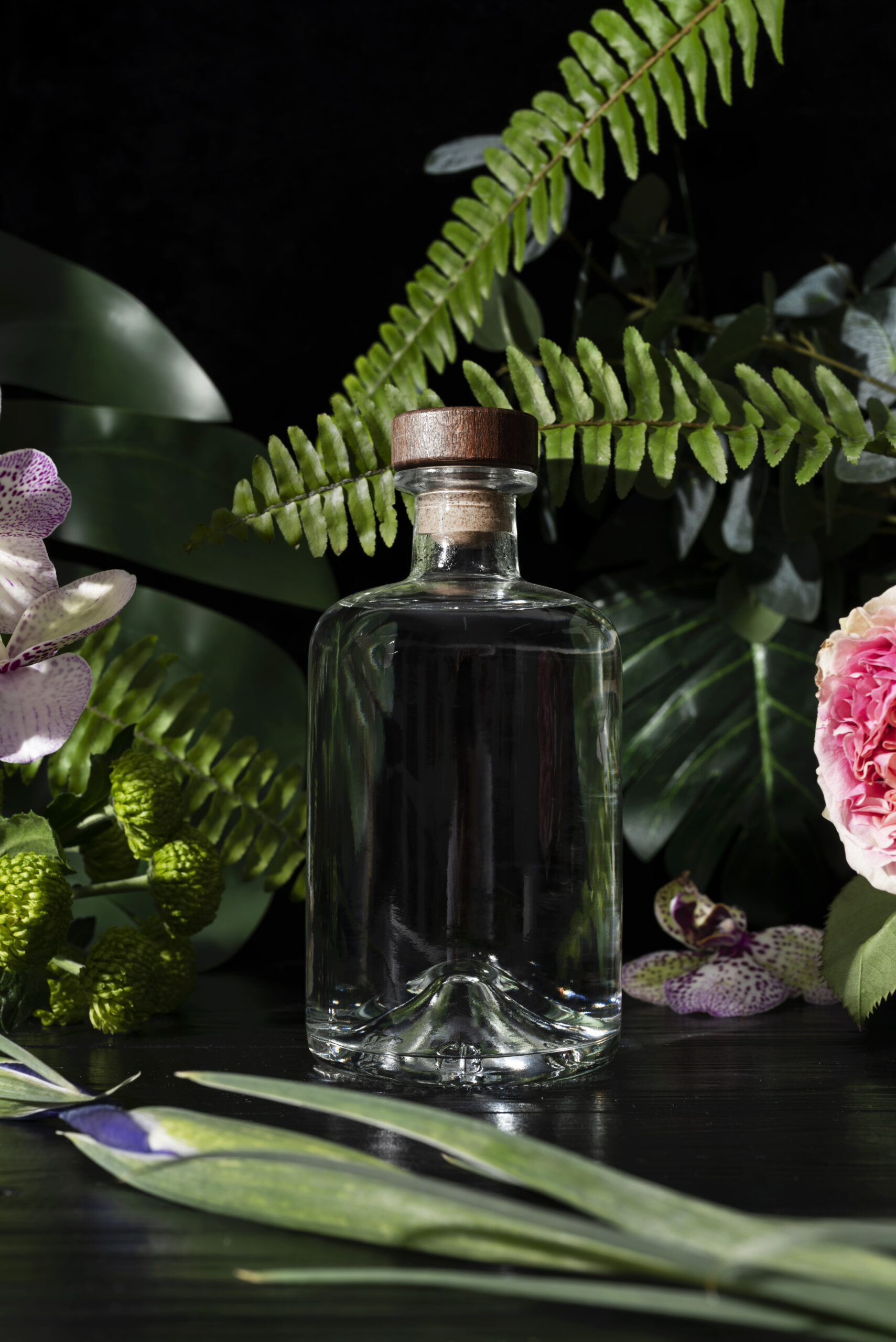Perfume shopping is a lot like picking the perfect outfit: it’s highly personal, it reflects who you are, and—let’s be honest—it’s fun! But when you’re faced with the option of choosing between natural and synthetic perfumes, things can get a little more complicated. Should you go for the allure of pure, natural ingredients, or embrace the endless possibilities of synthetics? It’s not as simple as “nature good, synthetic bad”—both have their pros and cons.
In this post, we’re going to dive into the world of natural and synthetic perfumes, comparing the two, and helping you figure out which one is right for you. So grab your favorite fragrance, sit back, and let’s get started.
What Are Natural Perfumes?
Natural perfumes are like a walk through a blooming garden or a hike in a lush forest (minus the bugs). They’re made using ingredients derived from nature—think flowers, fruits, spices, and woods. These perfumes use essential oils, absolutes, and plant-based extracts to create a fragrance profile that’s pure and simple. If you’re someone who loves the idea of smelling like nature itself, natural perfumes might sound like the obvious choice.
The appeal of natural perfumes often lies in their authenticity. People love the idea that what they’re spraying on their skin is straight from the earth, without any chemicals or artificial compounds. It’s kind of like the organic food of the fragrance world—clean, unprocessed, and wholesome.
But (and there’s always a “but”), natural perfumes aren’t without their challenges. Let’s break it down.
Pros of Natural Perfumes
- Eco-Friendly and Sustainable
Natural perfumes are often seen as more environmentally friendly. Many brands that focus on natural ingredients also take sustainability seriously, using ethically sourced materials and eco-conscious packaging. For the eco-warriors out there, this can be a big selling point. - Minimal Synthetic Chemicals
For those who are sensitive to synthetic chemicals, natural perfumes can be a godsend. If your skin reacts poorly to traditional perfumes, switching to a natural fragrance might help reduce irritation or allergic reactions. Plus, if you’re conscious of what you put on your body, this “clean beauty” approach can be appealing. - Unique Scent Profiles
Each batch of a natural perfume can smell slightly different due to the variations in the natural ingredients. If you like the idea of wearing something truly one-of-a-kind, this variability can be a plus. Natural perfumes often have a raw, earthy quality to them, which can make you feel more connected to nature (cue the peaceful forest sounds).
Cons of Natural Perfumes
- Limited Longevity
Here’s the deal: natural perfumes don’t last as long. Essential oils and natural extracts tend to evaporate more quickly than synthetic compounds, so if you’re hoping to still smell fabulous after a long day, you might be disappointed. You’ll need to reapply more frequently, which could become a bit of a hassle. - Fewer Options
Because natural perfumes are restricted to what Mother Nature provides, the range of scents is more limited. You won’t find a natural version of “neon pink cotton candy dream” or “space-aged metallic musk” in the natural perfume aisle. If you’re someone who loves bold, unusual scents, you might feel a little restricted with natural perfumes. - Pricey
Crafting perfumes from natural ingredients is often more expensive. Think about it: sourcing real rose petals (it takes thousands to make just a few drops of rose oil!) or rare tree resins can drive up the cost of natural perfumes, making them a bit of a splurge.
What Are Synthetic Perfumes?
Synthetic perfumes are the “mad scientist” side of the fragrance world. Created in labs, these perfumes use synthetic compounds to replicate or enhance natural scents—and sometimes to create entirely new, otherworldly fragrances that simply don’t exist in nature. If natural perfumes are like wearing a delicate floral crown, synthetic perfumes are more like sporting an avant-garde art installation on your head. It’s daring, innovative, and sometimes just plain cool.
Now, before you picture a chemist tossing random chemicals into a bubbling beaker, let’s clear one thing up: synthetic doesn’t mean “toxic” or “bad.” In fact, many synthetic fragrances are completely safe and meticulously tested. Plus, they often come with some unique benefits.
Pros of Synthetic Perfumes
- Long-Lasting Power
One of the biggest advantages of synthetic perfumes is their staying power. Thanks to synthetic molecules designed to last, you can spritz in the morning and still catch a whiff of your fragrance at dinnertime. No need to carry your perfume bottle around for midday touch-ups. - Unlimited Creativity
Synthetic perfumes open up a whole new world of fragrance possibilities. Want to smell like a sweet bubblegum with a hint of “freshly-rained-on-concrete”? There’s a synthetic for that. Perfume chemists can combine molecules in ways that simply aren’t possible with natural ingredients, giving them the freedom to create complex, innovative fragrances that push the boundaries of what perfume can be. - Consistency
Unlike natural perfumes, which can vary slightly from batch to batch, synthetic perfumes offer consistency. You can rely on your favorite synthetic fragrance to smell the same every time you buy it, which can be a major plus for people who like their scents predictable. - More Affordable
Synthetic perfumes are often more affordable than their natural counterparts because lab-created ingredients are easier to produce in large quantities. So, if you’re looking for a great fragrance that won’t break the bank, synthetic might be the way to go.
Cons of Synthetic Perfumes
- Potential Allergens
Some synthetic ingredients can cause allergic reactions or sensitivities in certain people. If you have particularly sensitive skin or are prone to fragrance allergies, it’s worth checking the ingredients list on a synthetic perfume. (Though, to be fair, natural ingredients can cause reactions too!) - Perception of “Artificial” Smells
Some people prefer the subtle, earthy quality of natural perfumes and find synthetic scents to be too “fake” or overpowering. If you’re someone who cringes at the thought of artificial vanilla or sugary-sweet synthetics, you might find natural perfumes more to your liking. - Environmental Concerns
While many synthetic perfumes are safe and ethically produced, there’s a growing concern about the environmental impact of certain synthetic chemicals, especially when it comes to pollution and sustainability. If environmental impact is a top concern for you, this could be a downside.
So, Which One Should You Choose?
Ah, the big question! The answer, of course, depends on your priorities. Here’s a quick breakdown to help you decide:
- If you’re eco-conscious and want to minimize your exposure to synthetic chemicals, go for natural perfumes. They’re often crafted with sustainability in mind and provide a beautiful, pure scent experience, even if they’re a little more fleeting.
- If you’re after long-lasting, creative, and affordable fragrances, synthetic perfumes are your best bet. They offer an endless variety of unique scents, and you won’t need to reapply every few hours.
Ultimately, the choice between natural and synthetic perfumes isn’t about right or wrong—it’s about what suits your lifestyle, your skin, and your personal preferences. You might even find yourself with a mix of both on your shelf, using natural perfumes for low-key days and synthetics for those times when you want your scent to make a lasting impression.
So go ahead, spritz, sniff, and explore. The world of perfume is vast, and whether you’re team natural, team synthetic, or a little of both, there’s a perfect scent out there just waiting for you!

